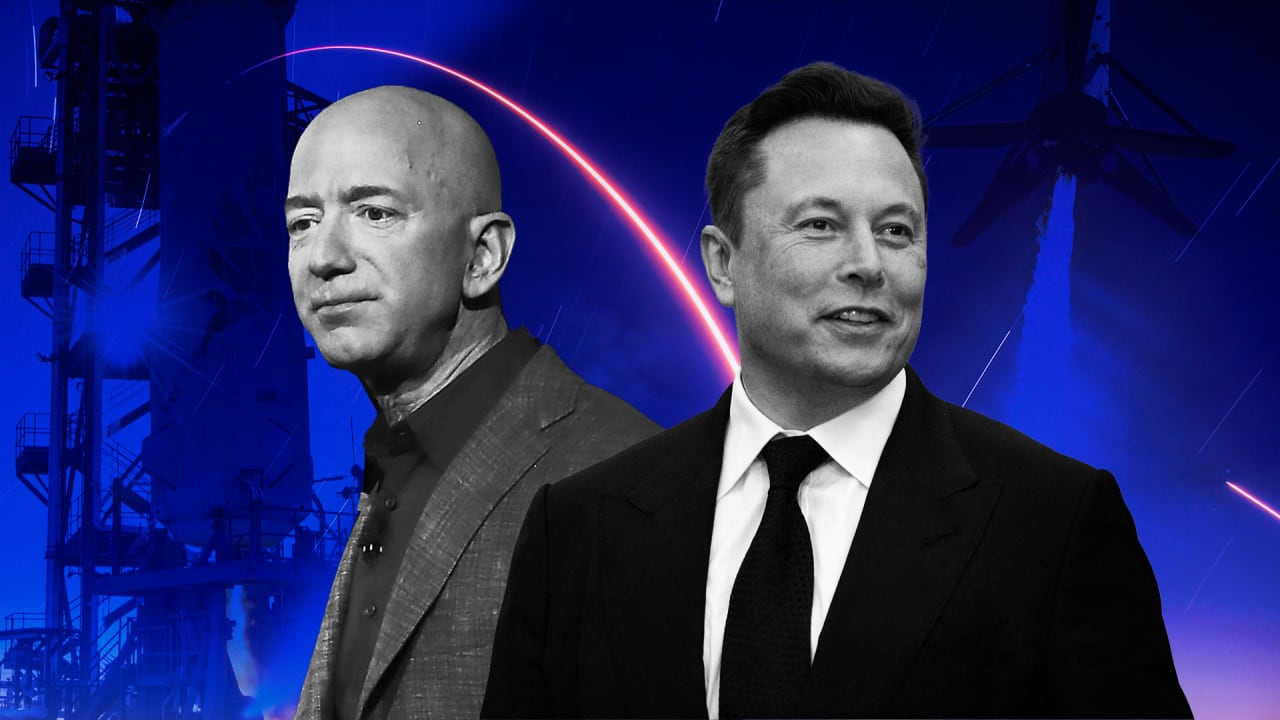In early February, Jeff Bezos, the founder of Amazon and one of the planet’s wealthiest entrepreneurs, dropped the bombshell announcement that he would be stepping down as CEO to free up more time for his other passions. Though Bezos listed a few targets for his creativity and energy— The Washington Post and philanthropy through the Bezos Earth Fund and Bezos Day One Fund—one of the highest-potential areas is his renewed commitment and focus on his suborbital spaceflight project, Blue Origin. Before space became a frontier for innovation and development for privately held companies, opportunities were limited to nation states and the private defense contractors who supported them. In recent years, however, billionaires such as Bezos, Elon Musk, and Richard Branson have lowered the barrier to entry. Since the launch of its first rocket, Falcon 1, in September of 2008, Musk’s commercial space transportation company SpaceX has gradually but significantly reduced the cost and complexity of innovation beyond the Earth’s atmosphere. With Bezos’s announcement, many in the space sector are excited by the prospect of those barriers being lowered even further, creating a new wave of innovation in its wake. “What I want to achieve with Blue Origin is to build the heavy-lifting infrastructure that allows for the kind of dynamic, entrepreneurial explosion of thousands of companies in space that I have witnessed over the last 21 years on the internet,” Bezos said during the Vanity Fair New Establishment Summit in 2016. During the event, Bezos explained how the creation of Amazon was only possible thanks to the billions of dollars spent on critical infrastructure—such as the postal service, electronic payment systems, and the internet itself—in the decades prior. “On the internet today, two kids in their dorm room can reinvent an industry, because the heavy-lifting infrastructure is in place for that,” he continued. “Two kids in their dorm room can’t do anything interesting in space. . . . I’m using my Amazon winnings to do a new piece of heavy-lifting infrastructure, which is low-cost access to space.” In the less than 20 years since the launch of SpaceX’s first rocket, space has gone from a domain reserved for nation states and the world’s wealthiest individuals to everyday innovators and entrepreneurs. Today, building a space startup isn’t rocket science. Related: Jeff Bezos: Blue Origin ‘is the most important work I’m doing’ The next frontier for entrepreneurship According to the latest Space Investment Quarterly report published by Space Capital, the fourth quarter of 2020 saw a record $5.7 billion invested into 80 space-related companies, bringing the year’s total capital investments in space innovation to more than $25 billion. Overall, more than $177 billion of equity investments have been made in 1,343 individual companies in the space economy over the past 10 years. “It’s kind of crazy how quickly things have picked up; 10 years ago when SpaceX launched their first customer they removed the barriers to entry, and we’ve seen all this innovation and capital flood in,” says Chad Anderson, the managing partner of Space Capital. “We’re on an exponential curve here

See the original post here:
How Jeff Bezos and Elon Musk are ushering in a new era of space startups